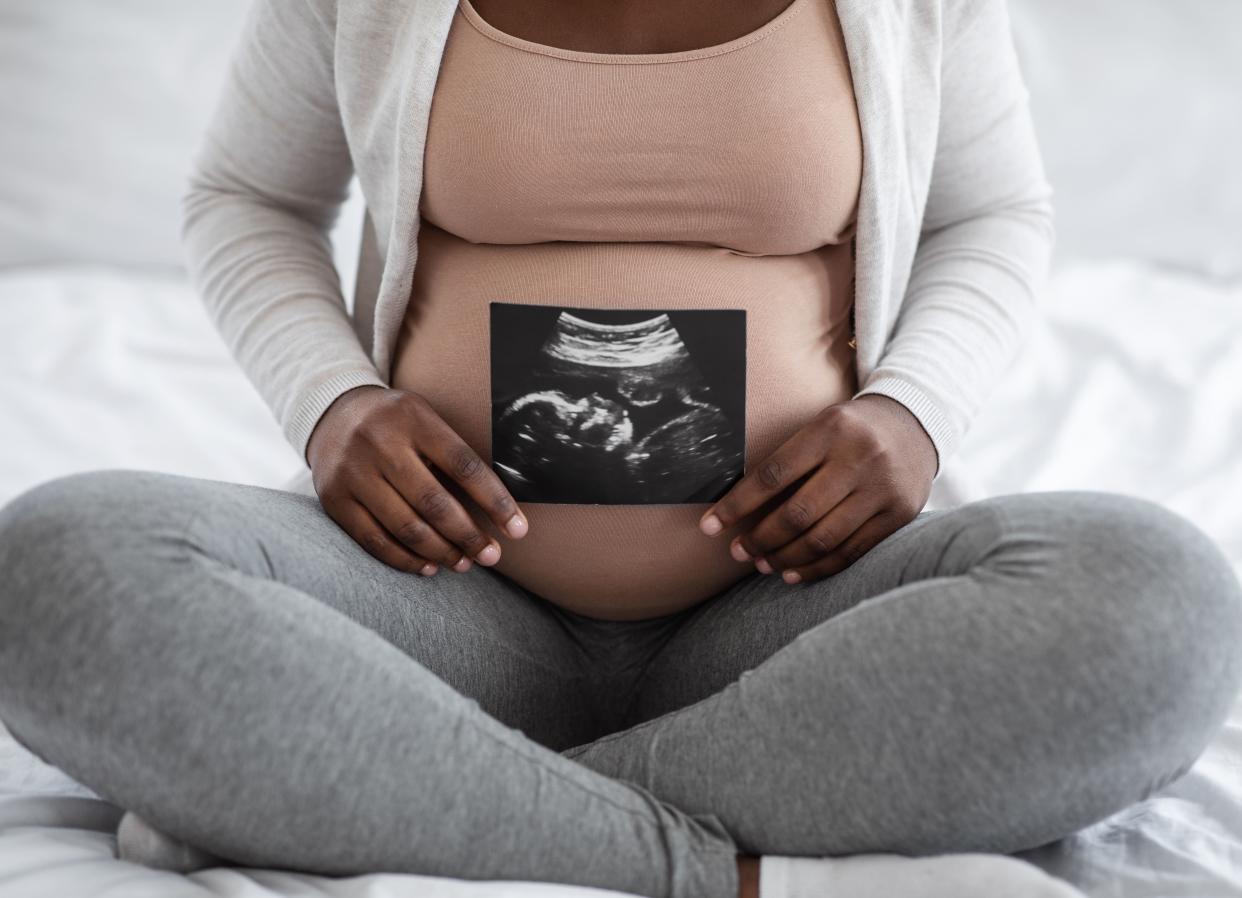Texas maternal death task force can’t review abortion cases, contrary to CDC guidance

Since 2013, one Texas task force has analyzed hundreds of pregnancy-related death cases and released dozens of recommendations for their prevention — helping shape policy and best practices for lawmakers, health care providers and residents across the state.
Now that Texas has had abortion bans in place for more than two years, the task force believed it could help answer a question that has long divided abortion rights advocates and anti-abortion groups in Texas: What effect do those restrictions have on women's health?
Then the panel realized it can't answer that question. State law prohibits it.
For more than a decade, a Texas law — Senate Bill 495 — has blocked the state's Maternal Mortality and Morbidity Review Committee from reviewing cases of women whose pregnancies ended in abortion, the group's chair, Dr. Carla Ortique, said at a public meeting March 22.
“When asked by many how the Texas MMMRC would gauge the impact of recent national and state legislative changes, we were confident when we responded that we review maternal deaths regardless of pregnancy outcome, and, as such, would be able to identify differences in case cohorts by comparative analysis over time,” said Ortique, an OB-GYN from Houston. “We're now aware that that will not be the case.”
Dr. Charlie Brown, a maternal-fetal medicine specialist and former chair of the Texas chapter of the American College of Obstetricians and Gynecologists, said he was “flabbergasted” that state law would keep cases in which a woman had an abortion from the committee’s review.
“Of course, abortion is related to pregnancy and (so are) deaths from an abortion," he told the American-Statesman in a phone interview. “I can't think of any reason why they would exclude that.”
The exclusion of abortion cases from the committee's review goes against recommendations from the Centers for Disease Control and Prevention, which establishes standards for maternal mortality review committees around the country, the federal agency told the Statesman.
“CDC guidance is that Maternal Mortality Review Committees review all deaths that occurred during pregnancy through the year after the end of pregnancy,” CDC spokesperson Nick Spinelli wrote in an email. “This includes pregnancies that ended in abortion.”
Though the group's name includes the word "maternal," the Texas Maternal Mortality and Morbidity Review Committee is a task force charged with reviewing and making recommendations for the prevention of “pregnancy-related deaths" — a term defined in state law and federal guidance to include patients whose pregnancies didn't end in delivery, such as those who died before their pregnancy ended or those whose pregnancies ended in miscarriage.
As per SB 495, which established the committee in 2013, pregnancy-related deaths are deaths “from any cause related to a woman’s pregnancy” that occur while she is pregnant “or within one year of delivery or end of pregnancy, regardless of the duration and site of the pregnancy." The bill also authorizes the group to study severe maternal morbidities, which are near-death events caused by a pregnancy-related condition.
But a provision tucked into the end of the 14-page bill, now enshrined in Chapter 34 of the Texas Health and Safety Code, specifies that the law does not apply to “disclosure of records pertaining to voluntary or therapeutic termination of pregnancy."
The provision means that the group cannot review cases like that of Amanda Zurawski, an aspiring mother who was forced to wait until she nearly died of septic shock for a hospital to terminate her nonviable pregnancy. The committee also is prohibited from examining any instances in which the state's medical emergency exceptions to its abortion bans were applied — 71 such cases have been reported to Health and Human Services since July 2022.
While state law has since 2018 required Texas doctors to report abortion-related health complications, including deaths, SB 495 prevents that data from being shared with the committee.

The Department of State Health Services confirmed to the Statesman that, in compliance with state law, the agency does not provide mortality or mortality records from pregnancies that ended in abortion to the committee. In fact, the agency does not maintain those case records, the department's media relations director, Chris Van Deusen, said.
The department is responsible for identifying cases that could be pregnancy-related, removing identifying details, and then presenting them to the review committee. Together, they produce a biennial report.
“The committee was set up to determine the causes of preventable maternal deaths and make recommendations about systemic changes to prevent them, not to look into elective or medically necessary abortions," Van Deusen wrote in an email to the Statesman.

He also said that each committee member receives a briefing and a copy of the group’s legislative mandate from the department, so the abortion records provision "is not something anyone was trying to hide from them."
Language in several of the review committee’s joint reports, however, could mislead the public into thinking that deaths related to any pregnancy, regardless of outcome, are included in the group’s data.
“The (committee) studies conditions around each pregnancy-associated case to determine pregnancy-relatedness by answering the question, ‘If she had not been pregnant, would she have died?’” reads the 2022 joint report from the state health department and the committee.
What the Texas panel may have missed — and could miss in the future
Data from the the state health department and the CDC indicate that the number of abortion-related cases that eluded the committee's review might not have been enough to sound an alarm, but some predict they could increase.
An average of 53,000 pregnancies were legally terminated in Texas each year between 2014 and 2020. Fewer than two women per year — 20 in total — were reported to have died from abortion-related causes during that period, according to CDC data taken from Texas death certificates, as the Austin Chronicle first reported. Roughly 100 reports of abortion-related complications have been filed each year since 2018, as per state health departement data.
Scientific studies have also shown that women whose pregnancies end before delivery generally have a far lower rate of maternal mortality and morbidity than those who carry to term. A 2017 CDC and Johns Hopkins University study of more than 2,000 pregnancy-related deaths in the U.S. found that 2.4% occurred for women who miscarried or had induced abortions, while 56.4% occurred after a live birth or stillbirth. Roughly 2.7% had ectopic pregnancies, and slightly more than one-fourth (26.4%) did not deliver. The outcomes of roughly 10% of the pregnancies studied were not known among cases in the study's cohort.

However, some researchers have predicted that new prohibitions could drive up deaths and near-deaths from unsafe abortions. Texas women and OB-GYNs have also filed lawsuits and have testified before the Texas Medical Board that uncertainty and fear around narrow medical emergency exceptions to Texas' abortion bans — which allow physicians to terminate pregnancies in cases in which a woman risks death or seriously risks "substantial impairment of a major bodily function" — have led physicians to delay or deny medical care to women experiencing severe pregnancy complications.
State Rep. Donna Howard, D-Austin, expressed concern about the provision and what it says about the state's views on women who have therapeutic or elective abortions.
"The Legislature’s decision to keep this data from the Maternal Mortality and Morbidity Review Committee perpetuates the idea that the state does not value the lives of women who terminate their pregnancies," Howard wrote in an email to the Statesman. "From my understanding, the potential abortion-related data would not have been statistically significant, but that does not mean their deaths should not have been considered in the Committee’s review."
The past and future of Texas' law prohibiting abortion review
Of the six authors and sponsors of SB 495 that the Statesman contacted for this article, only Rep. Armando Walle, D-Houston, who sponsored but did not author the bill, answered the Statesman's questions.
Walle said abortion cases were excluded during negotiations for the bill because they were not the legislation's primary focus. Given the changes in Texas abortion laws, Walle said he would be open to amending the review committee's current mandate to allow review of those records.
"We're talking about a review board that was created well before the overturning of Roe. But now with the overturning of Roe, it's obviously a much more pronounced issue," Walle told the Statesman. "The world has completely changed for women."
But Walle, who is known for facilitating bipartisan legislation in the House, wasn't optimistic that the change would succeed in the Legislature because it's "an environment that is hostile as it relates to abortion," he said in a phone interview May 8.
But he could have some unexpected allies. Two of the most influential anti-abortion lobbying groups in the state — Texas Alliance for Life and Texas Right to Life — also told the Statesman that they would support striking the provision excluding abortion records data.
"We would support allowing the MMMRC to review cases of pregnancy-related death or morbidity in which a woman's pregnancy ended in abortion," Texas Right to Life Director Rebecca Weaver wrote in a statement. "This is an important data point that is currently ignored in trying to address maternal mortality and morbidity in our state.”
Brown, the maternal-fetal medicine specialist who spoke on behalf of the Texas chapter of the American College of Obstetricians and Gynecologists, said the group would support efforts to lift the provision.
"From the perspective of wanting as complete a data set as possible, ACOG would certainly support (abortion records) being in there," he told the Statesman.
SB 495's authors — Sen. Joan Huffman, R-Houston, and Sen. Royce West, D-Dallas — declined to comment in response to repeated inquiries by phone and email over several weeks.
Read part two of this story: Abortion foes, supporters say Texas maternal death task force should review abortion cases
Correction: This story previously misstated the number of cases of pregnancy-related near-deaths that the committee has analyzed; while state law allows DSHS to provide such cases to the MMMRC, past reports have not included case studies of these incidents.
This article originally appeared on Austin American-Statesman: Texas MMRC can’t review abortion records in maternal death cases

